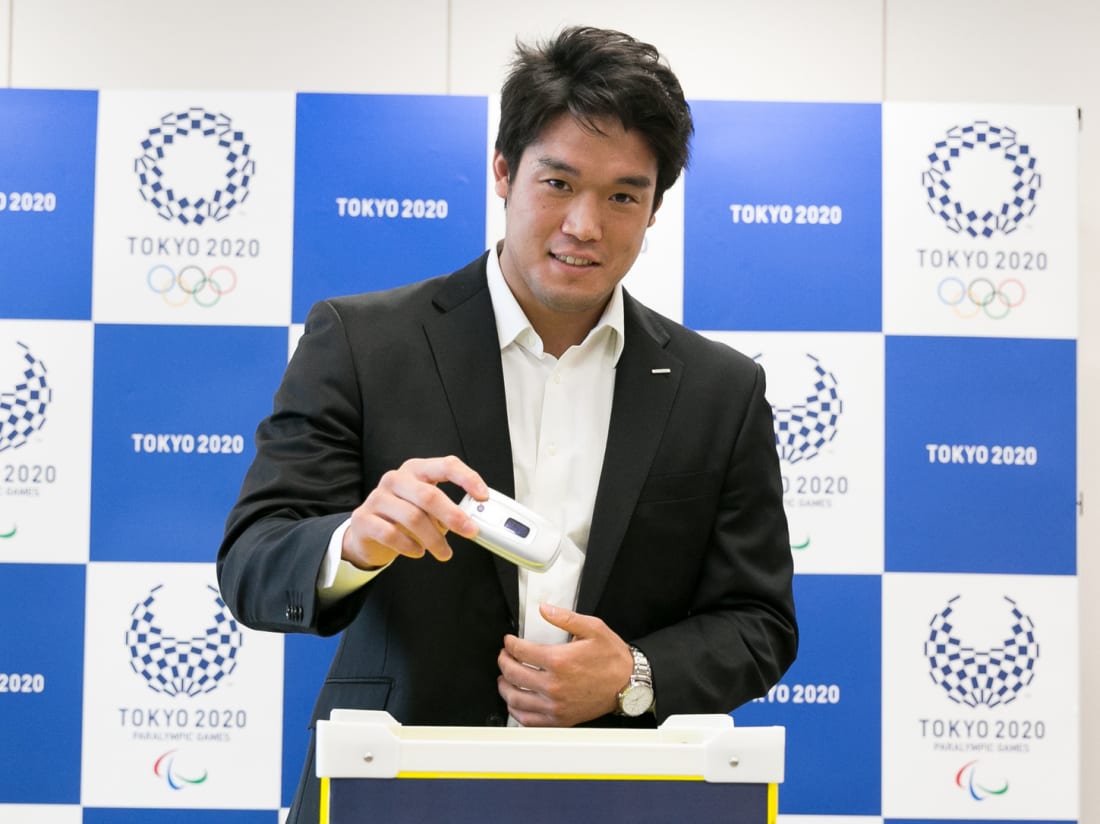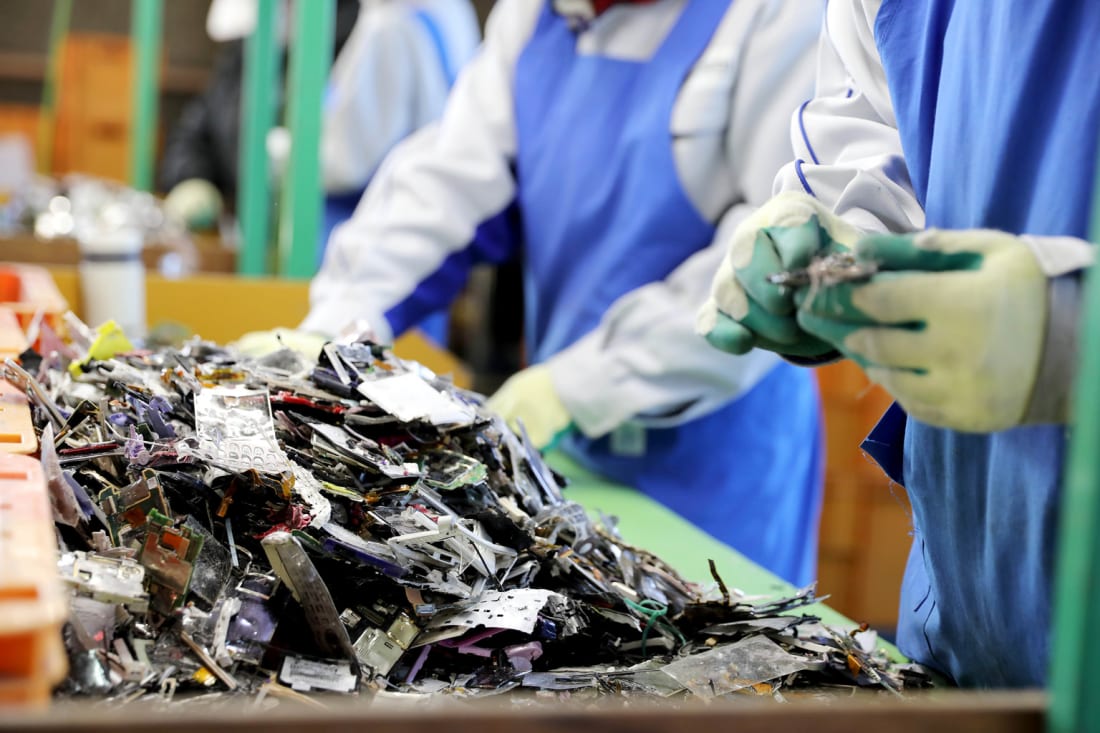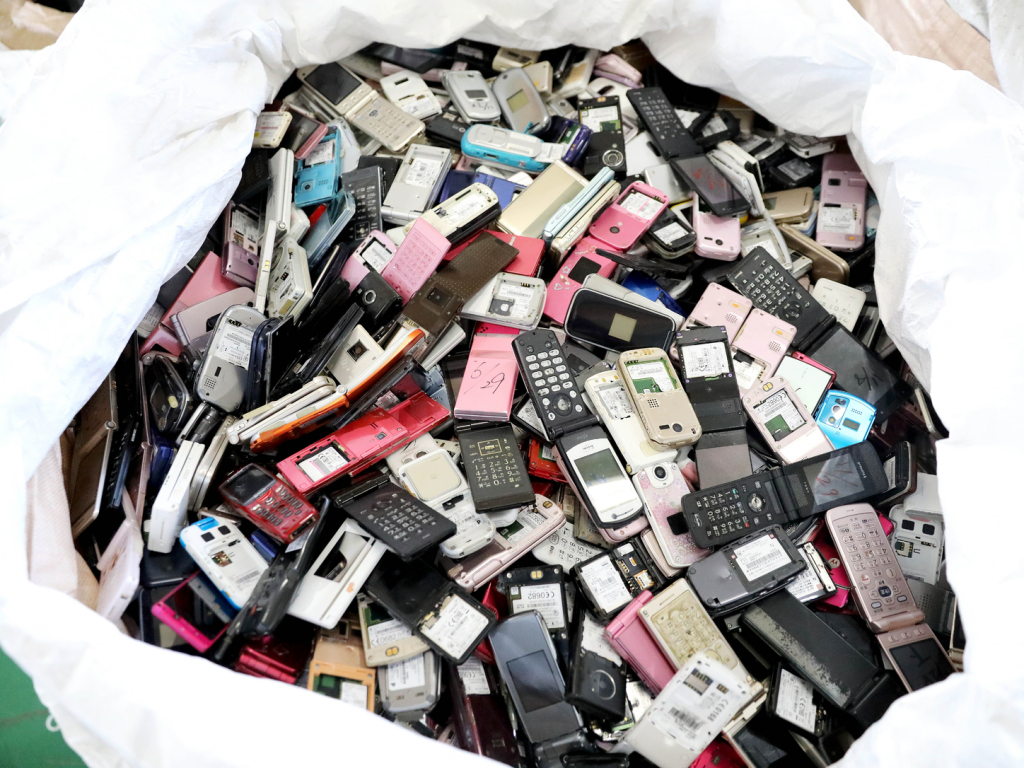When the members of Japan’s 4 x 100 sprint relay team hoists their gold medals on the podium at the Tokyo 2020 Olympics, they could be proudly displaying bits of your old cell phone.
In an effort to make the 2020 Olympic and Paralympic Games more environmentally friendly, the Japanese government and the Japanese Environmental Sanitation Center launched an initiative last summer with the aim to fabricate the gold, silver, and bronze medals using recycled electronic devices.
Within a few months, a little over 47,000 tons of discarded smartphones, digital cameras, handheld games and laptops had been collected – including more than 5 million mobile phones. The organizing committee for Tokyo 2020 anticipates reaching their goal by March 31, when the assigned collections bins across the country will be removed. So it’s now or never if you want to contribute to the project.

Rio 2016 Judo bronze medallist Ryunosuke Haga ©Tokyo 2020
Where To Go
The easiest, no-fuss way to donate your old electronics is to bring them to the nearest Docomo store. This is not only an option for Tokyo residents, but for anybody living in Japan, from Hokkaido to Okinawa. The same goes for selected Japan Post postal offices (click here for a PDF – in Japanese – of all participating locations). In Tokyo and Tokyo Bay areas, residents can also go to their municipal office to deposit their loot in designated boxes.
For those who would like to participate in the collection, in hopes that an old MP3 player could be taken home by one of the Olympians, seven Tokyo wards do provide collection information and methods in English:
Adachi-ku | Katsushika-ku | Meguro-ku | Nerima-ku | Shinjuku-ku | Setagaya-ku | Suginami-ku

©Tokyo 2020
What To Do
If you’re familiar with the process of recycling small electronic devices made of metals and precious metals, chances are you’ve already contributed to the medal project. Though the list can vary depending on the city, generally any type of small electronic objects is accepted, even calculators.
Unfortunately, bigger objects like PCs or televisions, for example, cannot be donated and if you absolutely must throw them away, they require a pick-up appointment from the city, much like the ones needed to get rid of old or damaged furniture.
Before donating, make sure to erase any kind of personal identification, engraving or data that might be found on the objects. Of course, batteries must be removed (and disposed of according to the regulations of your city) along with any type of storage medium such as an SD card.
The city of Tokyo is slowly implementing other green initiatives in preparation for 2020 Olympics, including the creation of increased green spaces and corridors and the installation of cutting-edge environmental technology at the Olympic Village and other venues.
Besides donating your busted smartphone, what else can you do to support Tokyo’s Olympic efforts? Well, you can learn to dance.
Feature image: ©Tokyo 2020









